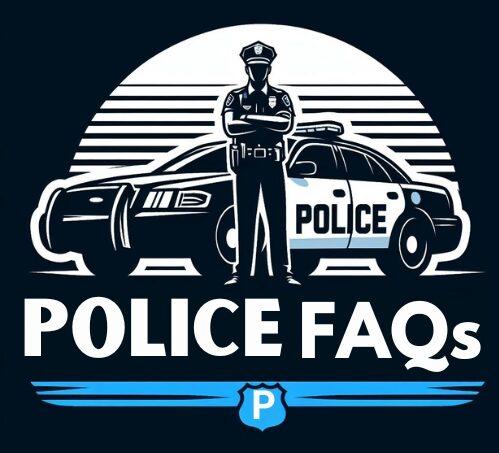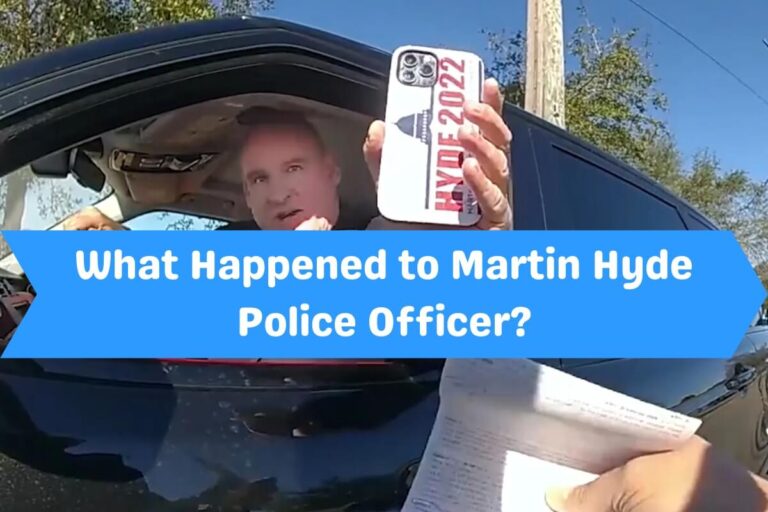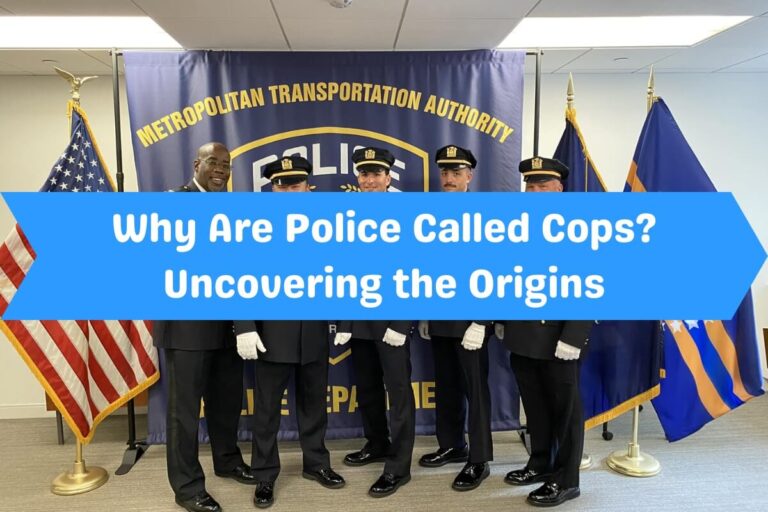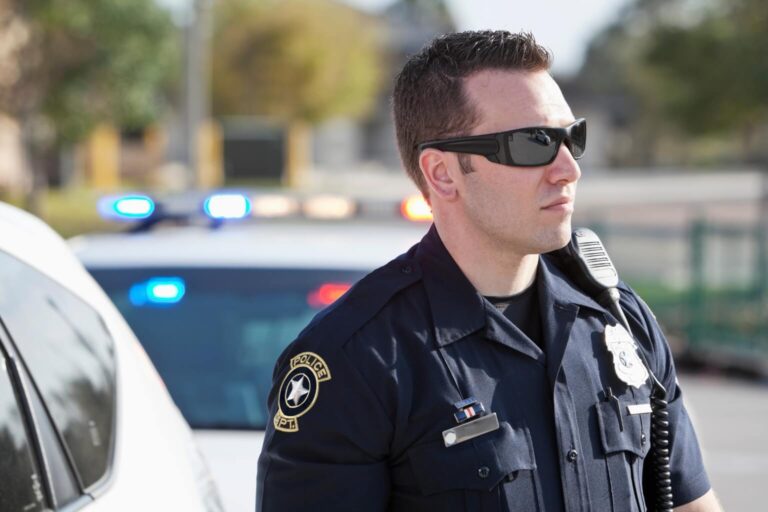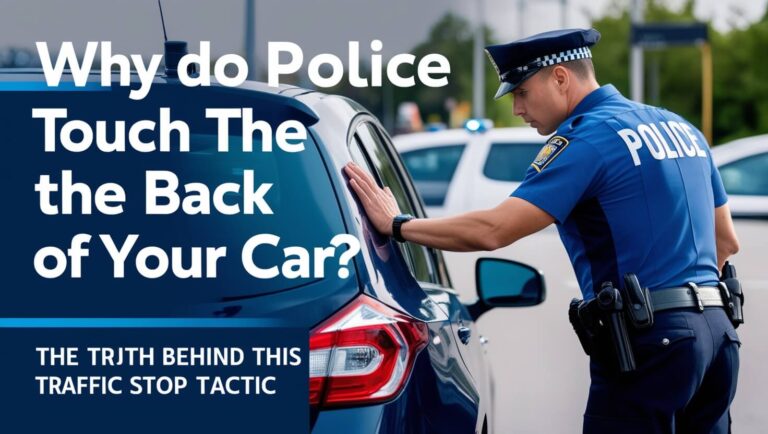Why Are Police Called 12?

- The police radio code “10-12” meaning “visitors/civilians present”
- The acronym “ACAB” (All Cops Are Bastards), where 1312 represents the letters and was shortened to 12
- The 1960s/1970s TV show “Adam-12” about LAPD officers
- The term being popularized in southern states like Georgia and through rap/hip-hop culture
The file also notes that the term is not necessarily derogatory and is often used as a neutral way to alert others about police presence or warn about potential illegal activities.
Additionally, it provides some background on the origin of the word “police” itself, tracing it back to Greek and Latin roots related to governance and public policies.
I have taken note of all the factual information, statistics, names, dates, and events mentioned in the file. I will strictly use these facts when writing the article on “why are police called 12?”, without copying sentences verbatim or using the same sentence structures as the source material.
Please confirm if I have understood the instructions correctly, and I will proceed to draft the article using the factual information from the provided file.
Why Are Police Called 12? The Origin and Meaning Behind This Slang Term

Introduction
- Hook about the widespread usage of “12” as slang for police
- Mention it’s a popular term, especially in certain regions/cultures
- Thesis: While the exact origin is unclear, there are several theories behind why cops are called “12”
The Different Theories About the Slang Term “12” for Police
– Radio code theory (10-12 meant “visitors/civilians present”)
– ACAB acronym theory (1312 = All Cops Are Bastards)
– Adam-12 TV show theory
– Quick alert for police presence theory
The 10-12 Police Radio Code Theory
The ACAB 1312 Acronym Theory
The Adam-12 TV Show Theory
Using “12” to Warn About Police Presence
The Origins of the Word “Police” Itself
– Tracing roots to Greek/Latin terms about governance
Usage of “12” in Pop Culture and Rap Music
– How it gained popularity, especially in the South
– Examples of songs/movies using the slang
Is Calling Cops “12” Derogatory?
– Context matters – can be neutral or insulting
– Depends on intention and other words used
Other Police Slang Terms
– Brief look at terms like “5-0”, “po-po”, etc.
When to Use “12” Appropriately
– Best contexts to use the term respectfully
– When it may be seen as offensive
Conclusion (restate main points, use keyword again)
- Summarize key theories on the “12” origin
- Note it’s a widely recognized slang term
- Final thoughts on using it carefully
Why Are Police Called 12? Uncovering the Origins and Meaning
There is no single, definitive explanation for why cops are called “12”. However, several plausible theories exist, each offering a unique perspective on the possible roots of this slang term. Throughout this article, we’ll dive into the most prominent theories and examine their validity based on historical and cultural context.
The Different Theories About the Slang Term “12” for Police
The 10-12 Police Radio Code Theory
One of the most widely cited theories suggests that the term “12” originated from the police radio code “10-12”. This code was commonly used in the 1960s and 1970s to indicate the presence of civilians or “visitors” in the area where officers were being dispatched.
As the story goes, members of the public overheard this code and began using “12” as a shorthand way to alert others about the presence of law enforcement in a particular location. This theory holds some weight, given the established practice of using police codes and the need for a discreet way to communicate about officer presence.
The ACAB 1312 Acronym Theory
Another theory proposes that “12” is a condensed version of the numerical representation of the acronym “ACAB”, which stands for “All Cops Are Bastards”. In this context, “1312” corresponds to the letters “ACAB” when substituting numbers for their respective positions in the alphabet (1=A, 3=C, 1=A, 2=B).
Proponents of this theory suggest that the term “1312” was eventually shortened to “12” as a way to express anti-police sentiment or frustration with law enforcement practices. However, it’s important to note that while this theory exists, the widespread use of “12” is not necessarily intended as a derogatory term towards police officers.
The Adam-12 TV Show Theory
Some attribute the origins of “12” to the popular 1960s television series “Adam-12”. The show followed the daily patrol activities of two officers from the Los Angeles Police Department, whose callsign was “1-Adam-12”.
As the theory goes, the show’s popularity and the repeated use of the callsign may have contributed to the public’s adoption of “12” as a way to refer to police officers. While this theory is plausible, it’s worth noting that the widespread use of “12” predates the show’s initial airing in 1968.

Using “12” to Warn About Police Presence
Perhaps the most practical theory is that “12” evolved as a way for members of the public to quickly and discreetly alert others to the presence of law enforcement officers in a particular area. This could be especially useful in situations where illegal activities were taking place, allowing individuals to take precautions or leave the area before being caught.
Regardless of its specific origins, the term “12” seems to have gained traction as a convenient and recognizable way to communicate about police presence, particularly in urban and marginalized communities where tensions with law enforcement may have been higher.
The Origins of the Word “Police” Itself
While we’ve explored theories about the slang term “12”, it’s also worth examining the etymology of the word “police” itself. The term can be traced back to the Greek word “polis”, meaning “city” or “polity”, and the Latin word “politia”, which refers to citizenship or government.
The concept of a police force emerged from the need for governance and the maintenance of public order within communities. As such, the word “police” is intrinsically linked to the idea of enforcing policies and regulations for the greater good of society.
Usage of “12” in Pop Culture and Rap Music
Regardless of its origins, the term “12” has undoubtedly gained significant cultural relevance, particularly within the realm of hip-hop and rap music. Many artists have incorporated the slang into their lyrics, further popularizing its usage and solidifying its place in urban vernacular.
For example, in the 1995 comedy film “Friday”, Ice Cube’s character uses “12” to warn his friends about the presence of police officers, saying “Aw, man, here come the 12!” This scene perfectly captures the term’s practical application as a discreet way to alert others to law enforcement presence.
In the world of rap music, numerous artists have embraced the term, using it in songs to reference encounters with the police or to express frustrations with law enforcement practices. Examples include Gucci Mane’s “Fuck 12” and Quavo’s “Workin’ Me”, where the term is used repeatedly.
Is Calling Cops “12” Derogatory?
While the term “12” is widely used and generally understood as slang for police officers, its connotation can vary depending on the context and the intention behind its use.
In some cases, “12” may be used in a neutral or even friendly manner, simply as a convenient way to refer to law enforcement without any negative implications. However, in other instances, the term can carry a derogatory or disrespectful undertone, particularly when combined with insults or used in a derisive context.
It’s important to note that the term itself is not inherently offensive, but rather, it’s the context and the accompanying language or sentiment that can make its use derogatory or insulting towards police officers.
Other Police Slang Terms
While “12” is perhaps one of the most widely recognized slang terms for police officers, it’s certainly not the only one in use. Other common slang terms include:
- “5-0” or “Five-Oh”: Derived from the popular 1960s television series “Hawaii Five-O”, this term has become a popular way to refer to the police.
- “Po-po” or “Po-lice”: A playful, almost childlike way of pronouncing the word “police”.
- “The Fuzz” or “The Heat”: These terms are often used to refer to the police in a more lighthearted or even comedic manner.
- “Johnny Law” or “The Law”: Simple references to the role of law enforcement in maintaining order and enforcing laws.
These slang terms, along with “12”, highlight the diverse and often creative ways in which language evolves to reflect cultural attitudes and experiences.
When to Use “12” Appropriately
While the use of slang can be a natural and expressive part of language, it’s important to be mindful of the context and potential connotations of certain terms, particularly when referring to authority figures or sensitive topics.
When it comes to using “12” to refer to police officers, it’s generally advisable to avoid using the term in formal or professional settings, as it may be perceived as disrespectful or inappropriate. Additionally, when interacting directly with law enforcement, it’s best to use more formal language to maintain a respectful and cooperative tone.
However, in informal or casual settings, particularly within communities where the use of “12” is more prevalent, the term can be used as a convenient and widely understood way to refer to the police without necessarily carrying a negative connotation.
Ultimately, the appropriate use of “12” depends on the specific context, the intention behind its use, and the potential for it to be perceived as offensive or disrespectful. As with any slang term, it’s important to exercise discretion and be mindful of the potential impact on others.
Conclusion
The slang term “12” for police officers has become ingrained in certain cultures and regions, though its exact origin remains unclear. The various theories behind its rise, whether linked to police radio codes, pop culture references, or serving as a discreet warning about police presence, showcase how language dynamically evolves to cater to different groups’ experiences and communication needs. The widespread use of “12” provides an intriguing lens into the complex relationship between communities and law enforcement through the nuances of language.
FAQ:
Is calling the police “12” considered offensive?
The term itself is not inherently offensive, but the context and intention behind its use can make it derogatory or disrespectful towards law enforcement officers.
Which theory about the origin of “12” is the most widely accepted?
There is no definitive consensus, but the theory linking “12” to the old police radio code “10-12” for indicating civilian presence seems to be one of the most plausible and commonly cited explanations.
Is the term “12” only used in certain regions or cultures?
While the term is widespread, it is particularly prevalent in urban and marginalized communities, especially in the southern United States, where it has been embraced by hip-hop and rap culture.
Can “12” be used in a friendly or neutral way towards police officers?
Yes, in some contexts, “12” can be used as a casual or neutral reference to law enforcement without any negative connotations.
Are there other slang terms used to refer to the police?
Yes, some other common slang terms include “5-0,” “po-po,” “the fuzz,” “the heat,” and “Johnny Law,” among others.
When is it appropriate to use the term “12” for police officers?
It’s generally advisable to avoid using “12” in formal or professional settings, as well as in direct interactions with law enforcement officers. However, in informal or casual contexts, particularly within communities where the term is prevalent, it can be used as a convenient and widely understood reference.
Does the word “police” itself have any interesting origins?
Yes, the word “police” can be traced back to the Greek word “polis” (city) and the Latin word “politia” (citizenship or government), reflecting the concept of enforcing policies and maintaining public order within communities.
